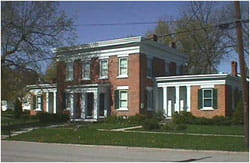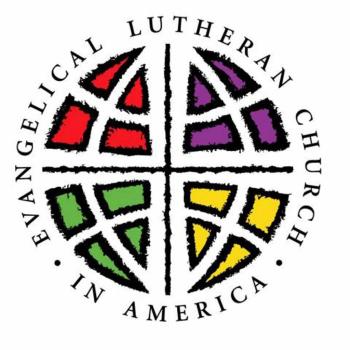Now Featured in the Patheos Book Club:
Commander of the Faithful, by John W. Kiser
FROM THE INTRODUCTION
...Such is the history of the man for whom our town is named. A scholar, a philosopher, a lover of liberty; a champion of his religion, a born leader of men, a great soldier, a capable administrator, a persuasive orator, a chivalrous opponent; the selection was well made, and with those pioneers of seventy years ago, we do honor The Sheik.
Class of 1915, Elkader High School, Iowa
"What kind of name is that?" newcomers ask. Settlements in the American West were typically named after Indian tribes, army forts, biblical references or the Old World origins of the pioneers. Iowa is typical. Its map is speckled with places such as Norway, Rome, Moscow, Jericho, Luther, St. Anthony, Lourdes, Holy Cross, Fort Dodge, Osage, and dozens of -burgs and -villes. All the more remarkable that there is a town in Iowa called Elkader.
They call themselves "Elkaderites," which sounds disturbingly like El Qaeda-ites. But they are neither admirers of Osama Bin Laden, nor relatives of the Jebusites or Amorites, or some other Old Testament tribe. Elkaderites are unique. Theirs is the only town in the United States named after an Arab.
 |
| The Carter House, Elkader, Iowa |
The man responsible for planting the name of a distant Muslim warrior in the rolling farmland of northeastern Iowa came from Utica, New York. The archives of the Clayton County Historical Society say Timothy Davis was born in 1794 when Utica was still a rugged wilderness, instilling in him " habits of frugality and industry" as well as "pluck and energy to battle the world." Following the westward march of the time, Davis settled in Dubuque in 1836, then still the Louisiana Territory. He practiced law and made a name for himself defending settlers who were being prosecuted for cutting timber on government lands. Davis's speaking ability, lively mind and knowledge of international affairs made him a respected local personality whose advice was sought on diverse subjects.
In 1846, Davis had concluded a business venture with his two law partners to acquire property north of Dubuque. A site on the Turkey River was ideal for a flour mill. Together, they laid out a new town plan centered around the future mill. His partners, Thompson and Sage, gave the honor of naming the new town to their friend.
Davis surprised them. Thanks to Littell's Living Age, he had been following from afar the exploits of a "daring Arab chieftain," named Abd el-Kader. This popular digest of the British and American international press had been cheering on the Arab sheik in his long struggle against the French colonization of Algeria. Memories of the American rebellion against British imperialism were fresh enough for Davis to see in the emir's resistance a freedom-fighting cousin. So Timothy Davis, a pioneer spirit, respected lawyer and distant admirer of this resilient underdog, named the new settlement after Abd el-Kader, wisely shortened for American tongues to Elkader.
Fourteen years later, another American would honor Abd el-Kader as a great Muslim and great humanitarian. This time it would be President Abraham Lincoln...
I am often asked how I learned of the emir and why I became interested in him. Abd el-Kader's story is actually a sequel to The Monks of Tibhirine: Faith Love and Terror, a book I wrote about Trappist monks in Algeria whose kidnapping and gruesome death riveted France in 1996. Their monastery in the hamlet of Tibhirine lay on the slope of a mountain with a steep cliff face called Abd el-Kader Rock.
Curious about the name, I was told Abd el-Kader was the Algerian George Washington, the father of modern Algeria, who had once directed a battle from the top of the mountain. Abd el-Kader was the first Arab to create a semblance of tribal unity in order to combat the French occupation. But in defeat, I noted a resemblance to Robert E. Lee. He was gracious, magnanimous, respected by his enemies, and deeply religious. As I learned more about Abd el-Kader from admiring Catholics in Algeria, I realized that the monks and Abd el-Kader shared a similar view of God, followed similar communal rituals, even dressed alike, and that their faiths found both a real and symbolic fraternity in Tibhirine.




